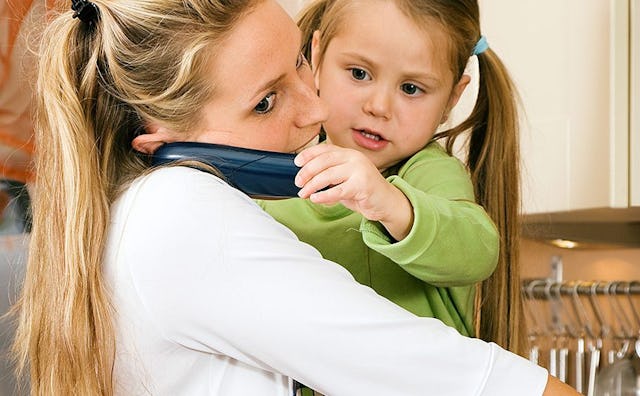It's Always Something

I remember my parents saying that a lot when I was younger. I nodded like I understood what that meant, because in my life, there was always something. I was wrapped up in getting through college. I spent hours e-mailing my friends who were scattered all over the country in faraway places like medical school. I was too busy to notice my parents, who were saddled with a failing business and struggling to care for my grandparents.
“It’s always something.“
I looked up from my laptop to see my mother, standing in the doorway of my bedroom. She was in her early forties. She looked tired as she leaned against the entry, telling me that my grandmother was in the hospital. My parents were supposed to take a business trip, but they were postponing it to care for my grandmother.
I blithely responded because saying nothing would be impolite. I may have even believed that I understood what she meant when she said, “It’s always something.” Life is a constant barrage of somethings. For me, it was term papers and finding a parking space at the university. A trail of failed relationships dragged behind me from one college to the next, and finally to my parents’ Louisiana home where I stayed for good, writing and mulling in my bedroom as my friends got engaged and planned their weddings.
I stood in six different weddings in 2002. I was convinced I would never meet the right man and would die alone, surrounded by cats. That would be my final something in a string of always somethings. These are the things that kept me up at night, while my mother was choking under the pressure of running a business and lining up in-home caregivers for her parents.
It’s not that I was any more self-involved than the next 22-year-old; it was that no matter what was going on, she was still my mom, available when I needed her. I went on to marry and have children, and she didn’t miss a thing.
I remember her hurrying into the delivery room with my father following behind hesitantly, likely out of fear that he would see something he could never un-see, and relief crossed her face when she saw they had made it in time. The check engine light was on in their truck, and they were worried they might break down on the highway as they raced to meet their first grandchild.
“It’s always something,” I heard her say.
But my mother was always my mother despite the somethings.
Years later, the dynamic has shifted, and I find myself asking out loud to no one in particular, because there is no one around to answer: How does one person care for three children under the age of 6 while her mother’s health slips away?
I am unprepared, gasping for air. I have no headlamp, no footing, no guidance. Nothing.
My mom called one afternoon to tell me what the cardiologist said, right as my oldest got home from school. I strained to hear her through the phone as children swarmed around me. “Hold on just a minute,” I said, covering the phone with my hand. I yelled at my kids to get out of the kitchen, and cradled the phone on my shoulder as I scooped up the TV remote and turned on something—anything—that would keep them quiet for a few minutes.
I choked back the tears as I listened. She sounded tired. The kids were digging in the pantry. I pulled down a bag of Goldfish crackers, and the two older ones dove into it as the baby snacked on the pieces that fell to the floor.
I had more to say, more questions to ask, but my 3-year-old was crying.
“It’s always something,” I heard myself say. “I’ll call you tomorrow.”
Now I understand.
This article was originally published on